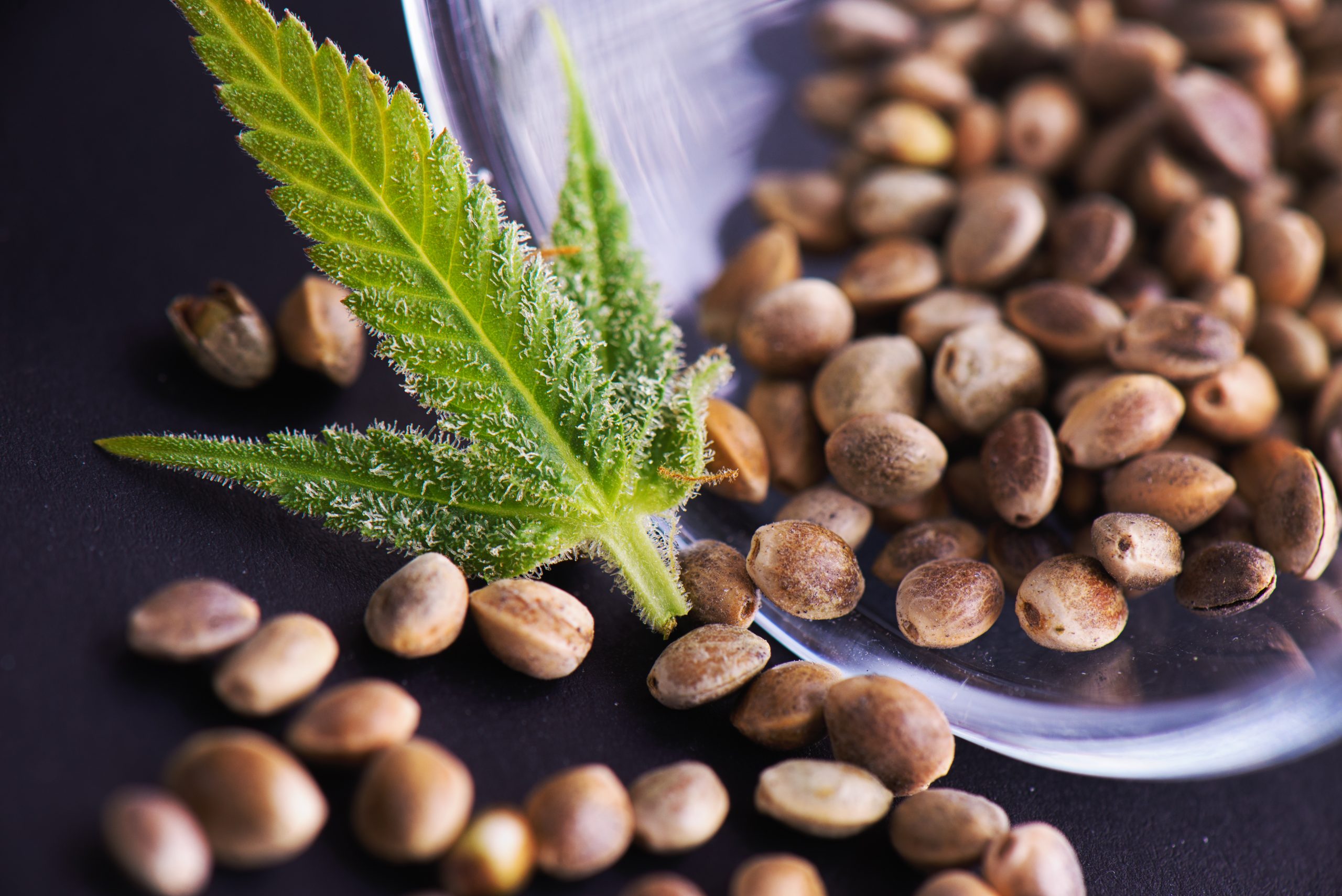The cannabis renaissance is fully upon us as states move one by one to address medicinal and recreational marijuana. While marijuana is still prohibited at the federal level, a recent review of federal regulations and statutes instilled some clarity in the realm of cannabis seeds. The review was performed in response to an inquiry made by attorney Shane Pennington regarding, specifically, the legality of weed seeds, tissue culture, and other genetic materials.
The contextual reading made by the Drug Enforcement Agency (DEA) involved analyzing the 2018 Farm Bill. The 2018 Farm Bill declared that marijuana seeds were considered hemp so long as they didn’t exceed a 0.3% THC limit. The revelations found within this review might make it easier and less intimidating than ever to start selling seeds in stores.
In order to understand how we got here, we need to go back in time. Let’s take a closer look at the 2018 farm bill, the state of seeds, and how the new ruling will make selling in stores more possible than ever.
Hemp vs. Marijuana – Redefining the 2018 Farm Bill
To track the cannabis renaissance as we understand it, we must go back to the 2018 Farm Bill and its impact on the definition of marijuana.
The Farm Bill redefined the Controlled Substances Act’s (CSA) definition of marijuana to exclude hemp. The Bill was passed by Congress, where it redefined hemp as any cannabis plant with under 0.3% THC. The Farm Bill would thus allow hemp to be used for large-scale industrial purposes, namely the creation of textiles and other such materials.
Prior to the recent federal review by the Drug Enforcement Administration, cannabis seeds were considered entirely illegal. The reasoning behind this was that these seeds would create plants that were high in THC. This recent review flipped the script on the conversation, leading to what could potentially be a major positive change within the industry.
Federal Review of Cannabis Seed Legality
Shane Pennington instigated and shared the results of his inquiry with the DEA in his Substack newsletter, “On Drugs.” Pennington’s inquiry focused on the legality of seeds on the basis that they did not possess more than 0.3% THC. As these seeds generally do not contain that level of THC, the official determination essentially admitted as such.
Terrence L. Boos of the DEA’s Drug & Chemical Evaluation Section summarized the Farm Bill’s ruling before exploring it contextually by saying, “Accordingly, marijuana seed that have delta-9-tetrahydrocannabinol concentration of less than 0.3% on a dry weight basis meet the definition of ‘hemp’ and thus are not controlled under the CSA.”
Boos would go on to say, “Conversely, marijuana seeds having a delta-9 tetrahydrocannabinol concentration more than 0.3% on a dry weight basis are controlled in Schedule I under the CSA as marijuana.”
The letter takes a stark departure from enforcement regarding cannabis seeds and their legality. The focus since the 2018 Farm Bill has been on the THC levels of the source material, rather than the genetic material itself. Pennington’s inquiry would force the official determination to clarify things.
The inquiry by Pennington would get the Drug Enforcement Administration to essentially concede that cannabis seeds were legal no matter how much THC the plant it grows would produce. The caveat, of course, is that there is less than 0.3% delta-9 THC within the content of the seeds themselves. Cannabis and hemp seeds themselves contain only nominal amounts of THC. This means that the letter from Terrence L. Boos makes cannabis seeds legal from the viewpoint of the CSA.
Pennington said of the inquiry performed by Mr. Boos, “In my view, the letter is significant because we continue to see confusion over the source rule.”
Impact on Selling Weed Seeds
After Pennington received the review of the inquiry, they were able to share their findings with the cannabis world. Pennington stated in an interview with Marijuana Moment, “Now that we know that the legality of the ultimate source of both hemp and marijuana plants hinges on delta-9 concentration alone, reliance on the source rule is much harder to defend.”
Pennington has not been a stranger to the DEA and their quest to end the federal monopoly on cannabis cultivation as research continues. Pennington said of the recent federal review, “I’m hopeful this will clear up a lot of confusion in this area of law.”
The outcome of the inquiry could be dramatic in the way that it impacts the cannabis industry. Allowing seeds to cross state lines for adults to access and purchase would not only spark sales but would also breed innovation. Strains would no longer be region-locked and could be enjoyed around the country.
While the letter was only listed as an Official Determination, Pennington believes that the DEA’s words will ring true going forward. Pennington said of the label on the letter, “To me, it sure seems like something the agency would either be bound to going forward or at least be very hesitant to deviate from…”
Now that the DEA has weighed in on clarifying the legality of cannabis seeds, there seems to be some potential going forward in terms of sparking sales throughout the industry. The ultimate outcome of the official determination revealed that people can possess any cannabis seeds, regardless of the THC produced by the plant.

